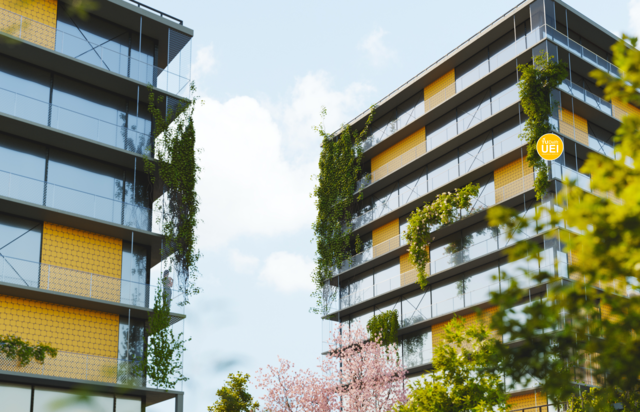B4B, Brains for Buildings
Development of dynamic and static methods for energy flexibility of buildings.
Centre of Expertise Mission Zero

Brains for Buildings is a multi-year program focused on developing methods to utilize big data from smart meters, building management systems, and the Internet of Things to reduce energy consumption, increase comfort, respond flexibly to user behavior and local energy supply and demand, and save on maintenance costs of installations. This will be achieved through the development of faster and more efficient Machine Learning and Artificial Intelligence models and algorithms. The project targets utility buildings such as commercial and institutional buildings.
The HHS participates in WP1 and WP2:
WP1: development of smart diagnostic systems to reduce energy losses in buildings in an automated way. This can then be used for performance-based maintenance planning.
WP2: development of smart control models to increase energy flexibility (heat, cold, and electricity) within buildings. Cost optimization, as well as CO2 emissions, comfort, and maximum utilization of local sources, are considered.
Approach
Brains for Buildings adds operational intelligence to buildings to facilitate the transition to energy efficiency and flexibility. Buildings need "brains" to respond to user behavior and enable self-diagnosis and self-optimization. Our ambition is to develop scalable and modular solutions that achieve 20-30% energy savings. The market value is significant due to the impact of these "brains" on energy bills, operating and maintenance costs, and user convenience.
Brains for Buildings focuses on:
- Development of control and management systems for utility buildings that intelligently address (1) reducing energy waste, reducing CO2 emissions, increasing the use of local resources, unlocking controllable energy flexibility, and reducing maintenance costs, and (2) considering user behavior and ensuring user comfort, health, and well-being.
- Testing and validating open-source prototypes (living labs, use-cases) to demonstrate the market value for companies, building owners, and facility managers.
Results
- Validated integrated prototypes of software plug-ins for smart control and management of buildings and installations, resulting in a 20-30% reduction in energy usage and maintenance cost reduction in utility buildings.
- Validated algorithms and prototypes of software for increasing controllable energy flexibility in buildings, applied to multi-commodity buildings.
- Validated prototypes of data-driven and user-centric user interfaces contributing to user comfort, health, and well-being.
- Standardized Smart Readiness Indicator (SRI) and associated quick-scan approach indicating how "smart readiness" for existing buildings can be increased.
- Methods, guidelines, and standards for data integration for smart building infrastructure, with an accompanying open data platform for demonstration and research purposes.
- Learning community where partners systematically share/exchange knowledge, resulting in online and offline educational programs on self-learning software for smart buildings and the integration with smart grids aimed at students (HBO, WO) and continuing education for professionals.
Team
Mirjam Harmelink, TU Delft
Involved Researchers THUAS
Baldiri Salcedo and Arie Taal
Duration
2021-2025
Funding
RVO, Mission-Driven Research, Development, and Innovation
Partners
TU Delft, TU Eindhoven, TNO, Hogeschool Windesheim, Hogeschool Arnhem Nijmegen, Haagse Hogeschool, Avans Hogeschool, Air-teq, Almende, APTA Technologies, Art Energy, BAM Energy Systems, Building G100, ChessWise, Cloud Energy Optimizer, Deerns, DGBC, DWA, DYSECO, FHI, FME/VLA, Heroes, Kropman, Kuijpers, NEN, O-Nexus, OfficeVitae, Peutz, Philips Real Estate, Renor, Rijksvastgoedbedrijf, Royal HaskoningDHV, Sensing360, Simaxx, Spectral, Strukton, SystemAir, Unica, W/E adviseurs, WOI.
Contact
Associate Professor Baldiri Salcedo [email protected]